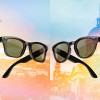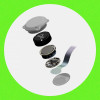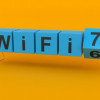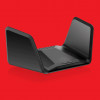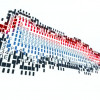'Smart shelf' test triggers fresh criticism
Wal-Mart Stores and Procter & Gamble quietly tested a controversial new retail technology earlier this year that allowed P&G employees to observe shoppers via a Webcam as they removed cosmetics from shelves, representatives of both companies confirmed Friday.
The test, which took place over a period of four months at a Wal-Mart store in the suburbs of Tulsa, Okla., sparked fresh criticism from privacy rights advocates, after a story in last Sunday's Chicago Sun-Times said the "secret study" made "unwitting guinea pigs" of Wal-Mart customers.
"It proves what we've been saying all along," Katherine Albrecht, founder of Consumers Against Supermarket Privacy Invasion and Numbering, said in a statement. "Wal-Mart, Procter & Gamble and others have experimented on shoppers with controversial spy chip technology and tried to cover it up."
CASPIAN and other consumer advocates are wary of so-called smart-shelf devices, which require outfitting merchandise with microchips that can broadcast their whereabouts via a radio signal. Critics say the technology, also known as radio frequency identification (RFID), could lead to a surveillance society. CASPIAN has called for boycotts of Gillette and Benetton over their RFID plans. Retailers, including Wal-Mart, laud the technology as a next-generation, and far more efficient, form of bar coding.














































